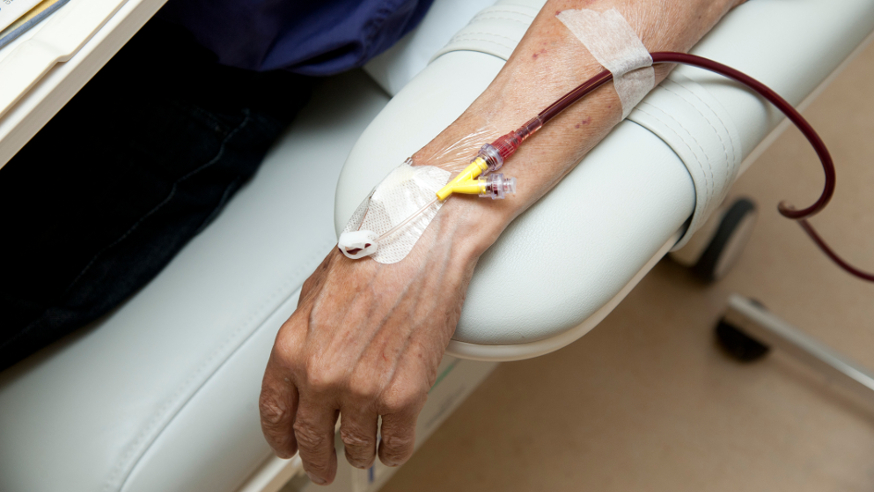
For some people with cancer, treatment within a clinical trial of an experimental new therapy forms an integral part of their care.
Yet many people may be currently denied that opportunity at least in part because of their age.
Patients with advanced cancers make up the bulk of participants in phase I trials of novel cancer treatments.
Traditionally, early phase trials have simply tested how much of a new treatment can safely be given to patients. But developments in molecularly targeted therapies and better knowledge about the biology of tumours mean phase I trials increasingly represent opportunities to test clinical benefits too. This is particularly relevant for patients where all standard available therapies have failed.
But there is concern that many older patients are missing out on the chance to join one of these innovative clinical trials. For instance, although 60% of people with cancer in the US are aged over 65, US-based research shows only around a third of patients enrolled into clinical trials for cancer drugs are in this age group.
Why? Inclusion criteria can be restrictive. There may be concerns over how well an older person would tolerate a new therapy. And doctors and carers may be reluctant to allow them to take an experimental drug.
There are some clinical issues common in older people that could make it inappropriate to enter a trial – including decline in organ function, co-morbidities or other medications. Yet many people reach older age without a great decline in overall body function.
The problem is nobody knows what upper age limit – if any – should apply: there has been little guidance from the scientific literature.
If older people are less likely to be involved in clinical trials, clinicians may have to rely on results extrapolated from younger patients. Potentially, this could mean real-world treatment outcomes for these patients differ from those reported in trials.
Redressing the balance
But a new study, published in the British Journal of Cancer, by researchers at The Institute of Cancer Research and The Royal Marsden could signal a shift in thinking.
Study leader Professor Stan Kaye, a consultant at The Royal Marsden and an emeritus professor at the ICR, explains: “The key question is whether older patients with cancer have age-dependent risks of treatment which mean they would not be suitable for experimental therapy.”
In the first study of this type conducted in the UK, his team found strong evidence that patients should not be excluded from becoming trial participants on the basis of their age alone.
They examined data from more than 1,000 patients in 30 phase I trials conducted at the ICR’s and The Royal Marsden’s joint Drug Development Unit from 2005-2009. The team compared trial outcomes between people aged above and below 65 years.
They found no difference in reported toxicities, numbers of participants who left the trial early or enforced changes to doses. In fact, progression-free survival after treatment was actually slightly higher in older patients.
The team also confirmed that a prognostic score developed previously at The Royal Marsden can accurately forecast outcomes in older patients, and could help select suitable patients for trials.
Pros and cons
Professor Kaye says: “It’s not to say that older patients who have associated morbidity or other problems should go into trials. The criteria for fitness apply across the age ‘limit’.
“There are pros and cons to be gained, and it is important these are fully discussed with patients – some may feel it is not right for them and others may feel it’s what they might want to do.
“But we want to make sure it’s in the literature that people who are older should not be denied that opportunity. It’s important given the increasing proportion of people falling within this age group.”
Lead author Dr Khurum Khan, Clinical Research Fellow at The Royal Marsden NHS Foundation Trust said: “Although extrapolation of data in medicine requires cautious interpretation, our findings not only support that older patients should be offered equal opportunity to participate in phase I trials, but suggest that age should not be considered a barrier in oncology trials in general, as long as individual risk versus benefit is assessed in a personalised way.”
The stark under-representation of older people in phase I trials suggests large numbers of patients are being denied the chance to try new cancer treatments that potentially could extend their life.
This new research provides the evidence needed to redress the age imbalance in trial recruitment, and give clinicians faith that reported trial outcomes truly reflect the benefits they can expect for their older patients.
comments powered by